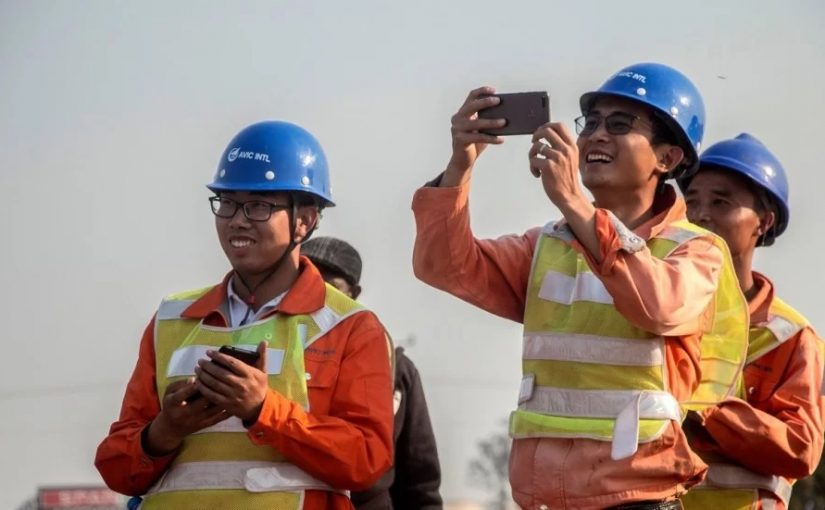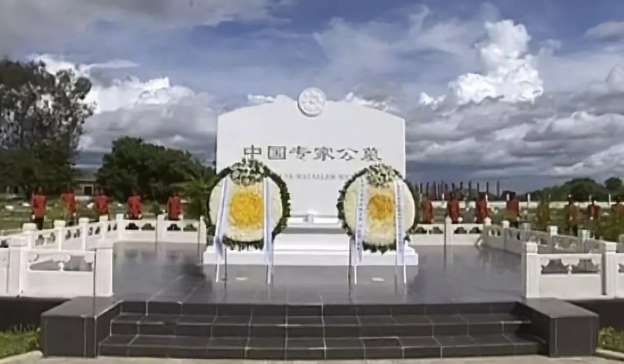South African president names new environment, deputy trade ministers
China touts ‘martyrs’ killed working on Zambia infrastructure projects as symbol of friendship

China is planning to build a cemetery in Zambia that honours Chinese construction workers killed working on the country’s infrastructure projects as “martyrs”.
The announcement comes amid a growing backlash over Chinese-funded infrastructure projects in Africa and fears that poorer countries are being forced to take on unsustainable debts to fund them.
But Li Guiguang, a deputy director of the newly established Ministry of Veterans Affairs, said the new cemetery in the capital Lusaka would help to symbolise the long-term friendship between China and Africa.
“In African countries like Tanzania, Zambia, Egypt, Ethiopia, Nigeria, Algeria, there are already cemeteries for the Chinese specialists who sacrifice their lives for foreign aid [projects]),” Li told People’s Liberation Army Daily last week.
Thousands of Chinese engineers and construction workers are currently in Zambia and dozens have been killed working on the infrastructure projects.
China has been involved in infracture projects in Zambia since the 1960s when the country, formerly known as North Rhodesia, declared independence from Britain.
One of the biggest current schemes involves work to build a railway linking Zambia with Tanzania, also known as the TAZARA line, at a cost of US$406 million.
China has sent out an estimated 56,000 engineers and workers to build the line, 66 of whom have died during construction, according to Chinese state media.
Beijing has touted the project as an enduring symbol of the solidarity of the developing world and China’s support for African independence and development.

But China’s deepening involvement in Africa has triggered increasing controversy in many of the countries involved.
The scale of Chinese investment to build roads, bridges, airports and ports has generated increasing concerns that it will create a debt trap in smaller countries such as Zambia, which will be forced to hand over assets if they cannot repay the loans.
The debate about the influx of Chinese investment has intensified in recent months in Zambia after thousands took to the streets in Copperbelt Province to protest after rumours that a local timber company had been sold to Chinese buyers.
Qi Kai, an associate professor at Beijing Academy of Social Sciences and a research head at China Overseas Security Research Institute, said the recent tensions in Zambia reflected the growing risks China is facing in Africa.
“Some Chinese companies are not familiar with or fail to give full respect to local laws, and sometimes put relations with central government ahead of those with local governments and communities,” Qi said. “Without a full assessment of local conditions the Chinese companies may find themselves in trouble, which will eventually damage China’s reputation in Africa.”

Li said the Zambians had agreed to allow three existing Chinese cemeteries to be merged into one on a two-hectare site near the University of Zambia, adding that the project would break ground before the end of the year.
But the plan hit a glitch after the local authority, Chongwe municipal council, demanded an immediate halt to construction work after the Chinese developer failed to obtain the proper planning and urged it secure the correct paperwork.
But Friday, Zambia’s foreign affairs minister Joe Malanji told News Diggers, a local media portal, that the land in question had been given to the Chinese government legitimately in 2015 and the firm should proceed with the work.
By Laura Zhou












Leave a Reply
Be the First to Comment!
You must be logged in to post a comment.
You must be logged in to post a comment.